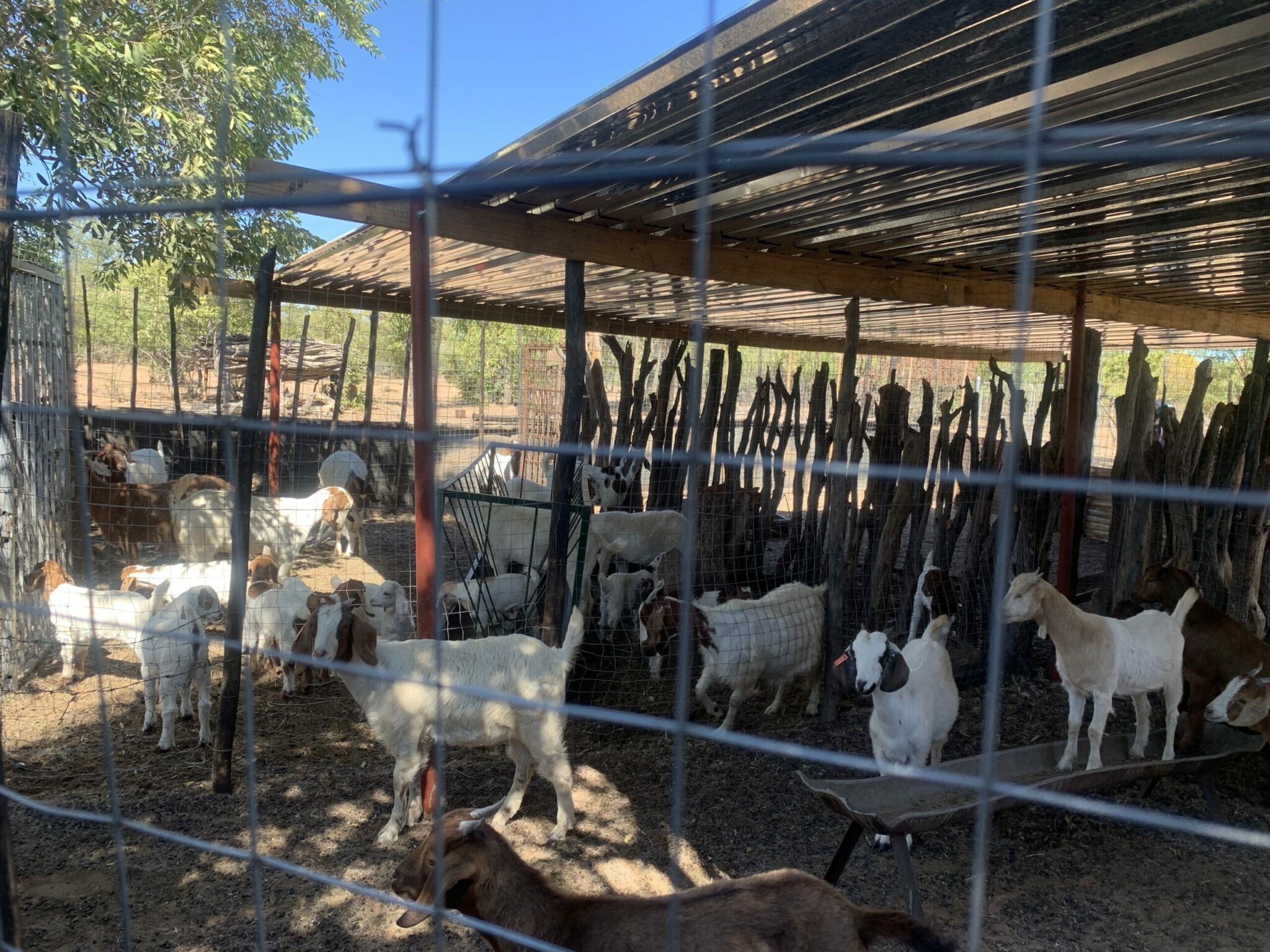Rachel Mlalazi, a farmer in Bulilima district, Matabeleland South, has turned to Boer goat rearing as a way to adapt to climate change brought on by the El-Nino-induced drought.
Mlalazi, of Ward 4, Lulo village, Tokwana, embarked on a small livestock production project of rearing goats.
The effects of the drought have hit farmers in rural areas hard, and they are losing a lot of livestock, especially cattle.
The drought was initially said to last until 2025, but the latest estimates have revealed that it may stretch to 2028.
Speaking to CITE at a field day event conducted by Agritex, and supported by Hope for a Child In Christ (HOCIC), held at her homestead, Mlalazi shared insights on the goat rearing project, its opportunities and challenges.
The event was attended by women from Sisonke Working Together Trust who aspire to venture into small livestock production.
“We got our Boer goats in April of last year. We had nine kids last year and after this kidding season, we now have 18 kids. The mortality rate is close to none. From the goats that we have, we only lost one,” she narrated.
“We made paddocks for them so that they can be protected from hyenas. We also partitioned the paddocks so that we could monitor them well. We have those who are pregnant, they stay on their own, and the lactating ones stay on their own. We also have a section reserved for those who may fall ill and would need special care.
“In the duration of this project, I have been working closely with our Agritex officer, who has been very helpful. We ensure that the goats have clean drinking water, their troughs are clean and ensure that they get adequate nutrition in their feed.”
Mlalazi said the lack of water due to drought is a huge challenge to the project.
“The biggest challenge that we have faced thus far is that of drought. Goats are very sensitive when it comes to water. They need clean drinking water. With the little rain that we received, we are in a crisis. There is also the challenge of hyenas that made us build these paddocks to keep them protected,” she said.
“But overall, it is a project that rakes in good money. So far, we already have ten kids that have been booked at US$120 each. We are set to deliver them first week of November when they reach six months.”
Addressing the attendees at the event, Agritex Livestock Officer in Bulilima, Irene Ncube, encouraged the farmers to consider adapting to small livestock production.
Ncube explained that holding on to cattle, with the little water available and the high price of stock feed would result in great losses by the farmers.
“It is important for a farmer to understand their operating environment and make the necessary adjustments. Adaptation is key. As farmers, you may say you want to stick to keeping cattle, but give the climatic conditions that we are experiencing now it is very difficult. One cow eats 50kgs of feed in five days if it is that you are feeding them sparingly,” Ncube advised.
“Owing to the current price, it is difficult to keep up the feeding scheme. The prices are high for stock feed. Also, because of drought, livestock is not being treated as a priority. People are considering feeding themselves first before they feed their livestock. It is better to consider keeping livestock that is drought resilient, that requires lesser intake of stock feed, which can be attained at a lesser price.”
HOCIC director, Sunga Mzeche, emphasised the need to adapt as per the demands of the climate conditions.
She said it is important for the women in the area to take the information that had been shared and work on embarking on similar projects, with the assistance of Agritex officers at their disposal.
“This was a very educative event. We encourage fellow women to follow suit, work closely with Mlalazi and gain more information. They must adapt according to the demands of the climate conditions. We are experiencing serious drought and due to the lack of rain, most of the usual revenue streams have been disturbed,” Mzeche said.
“People from this area usually make a living out of harvesting Mopane worms, but there was no rain, so that means that they do not have enough Mopane worms to either consume or sell. Instead of basing only on farming activities, which are mostly dependent on rain, we encourage women to take up the goat-rearing initiative. With adequate guidance and education, they can make money from the project and sustain their children.
“As HOCIC, our projects prioritise children’s welfare. In all our initiatives, our goal is to ensure that children, at the end of the day are well taken care of. We therefore encourage women from this area to coordinate themselves, come up with cooperatives under which they can run such projects and sustain their livelihoods.”

